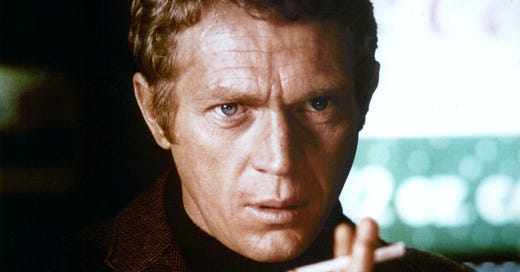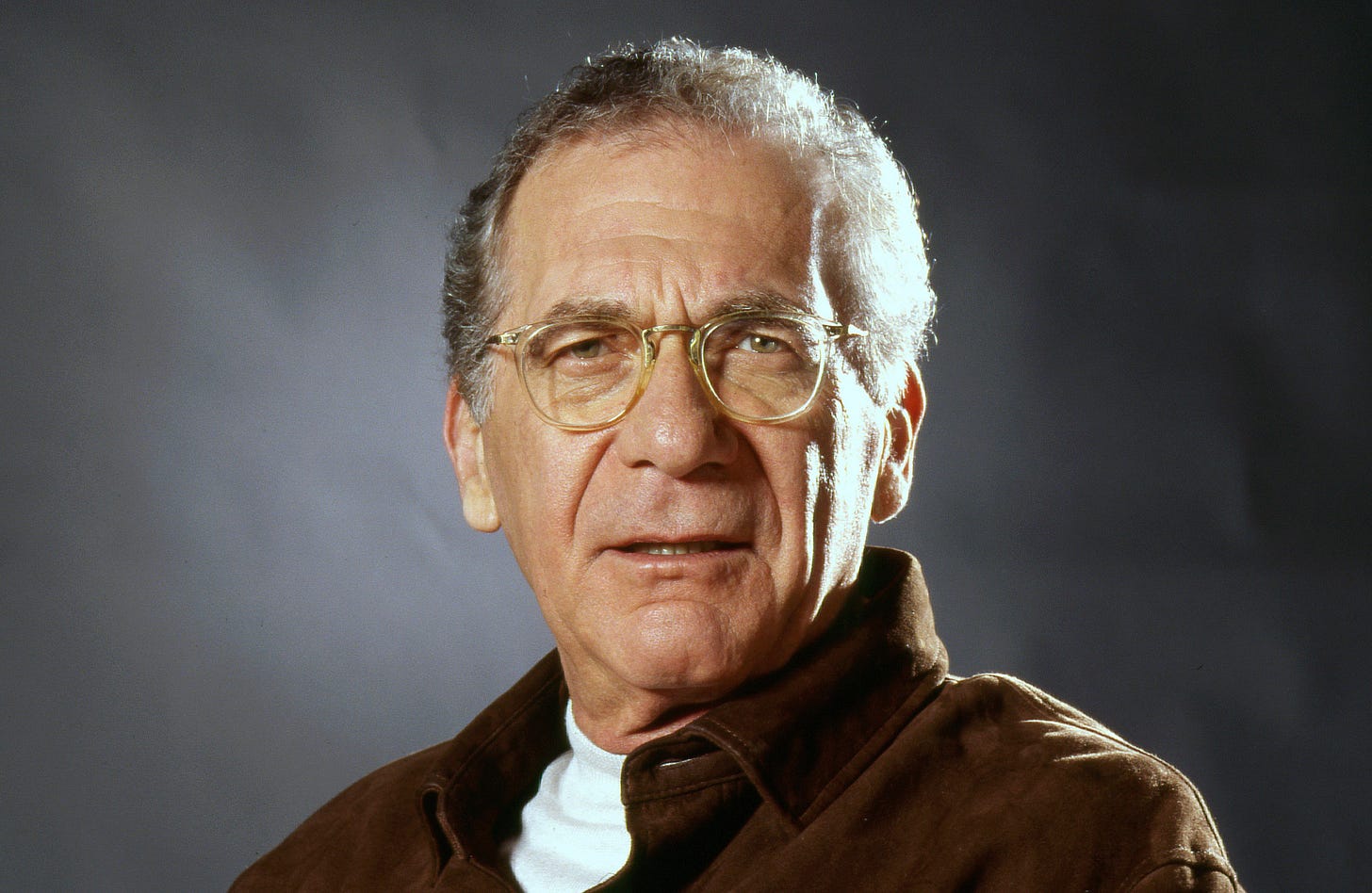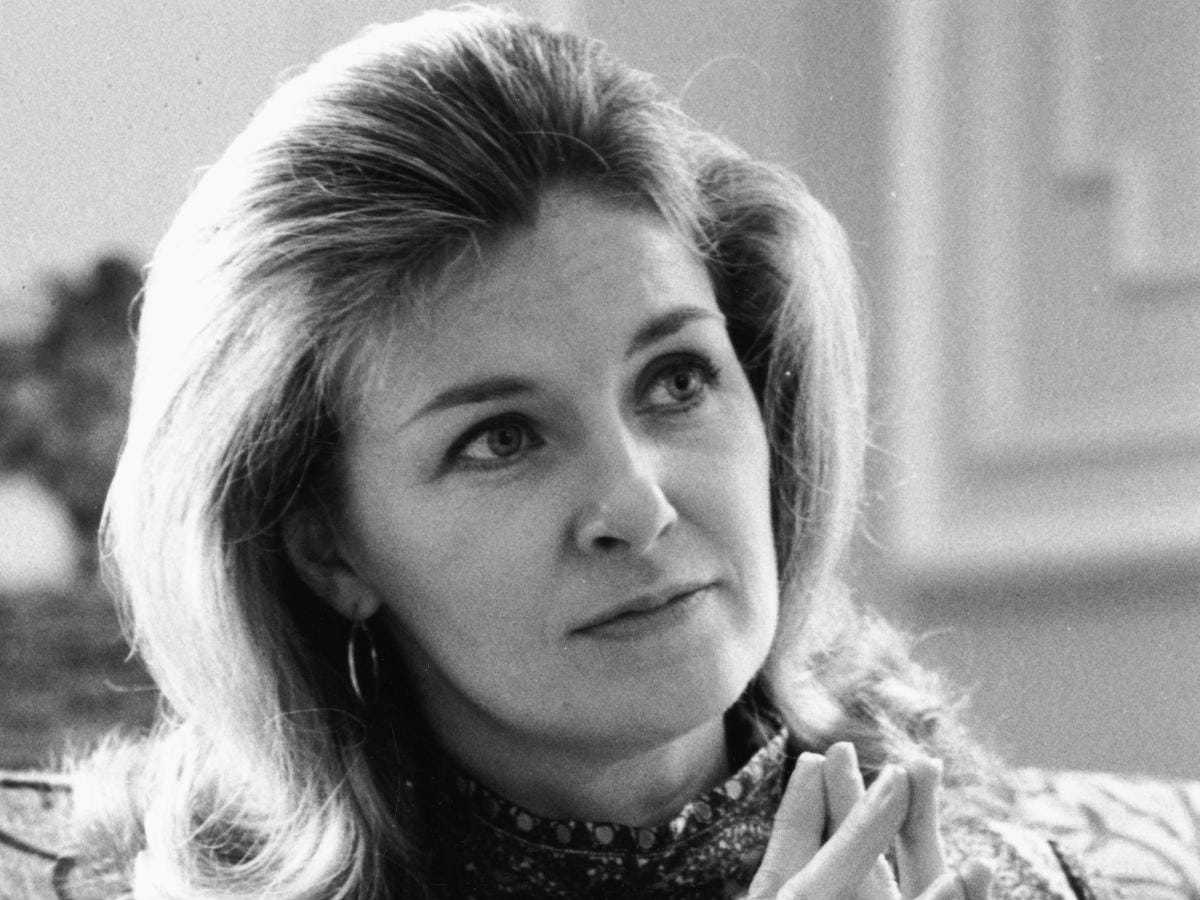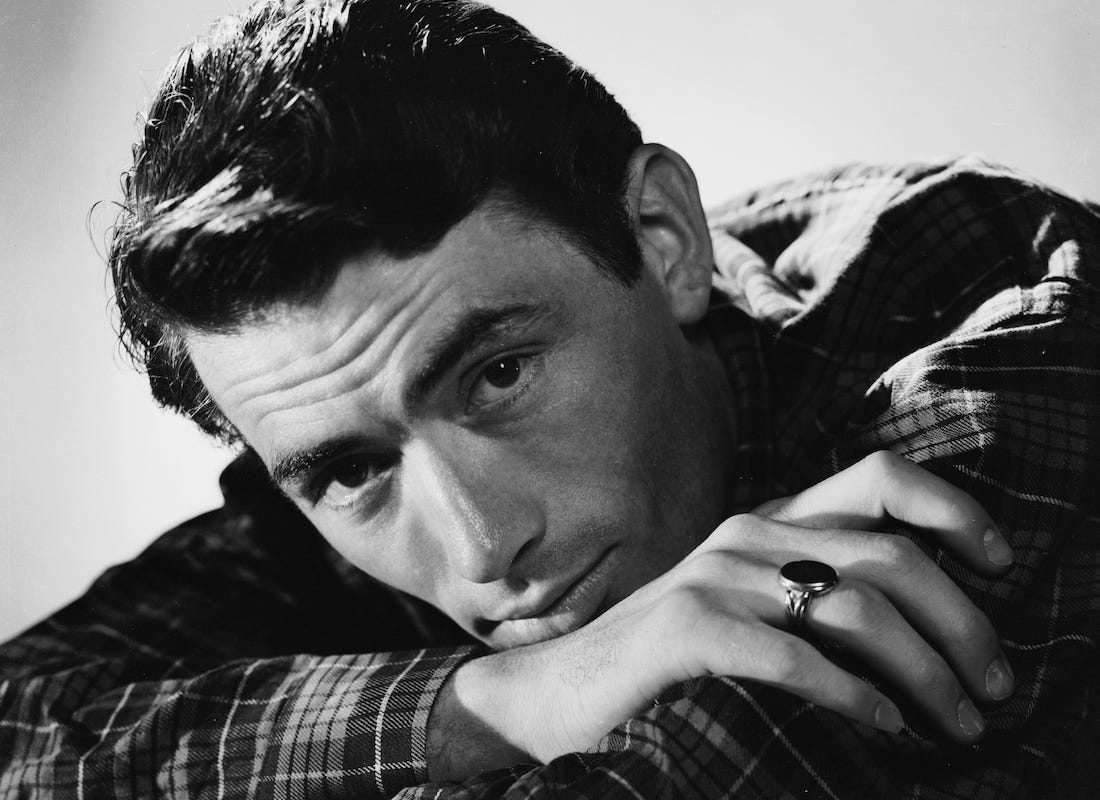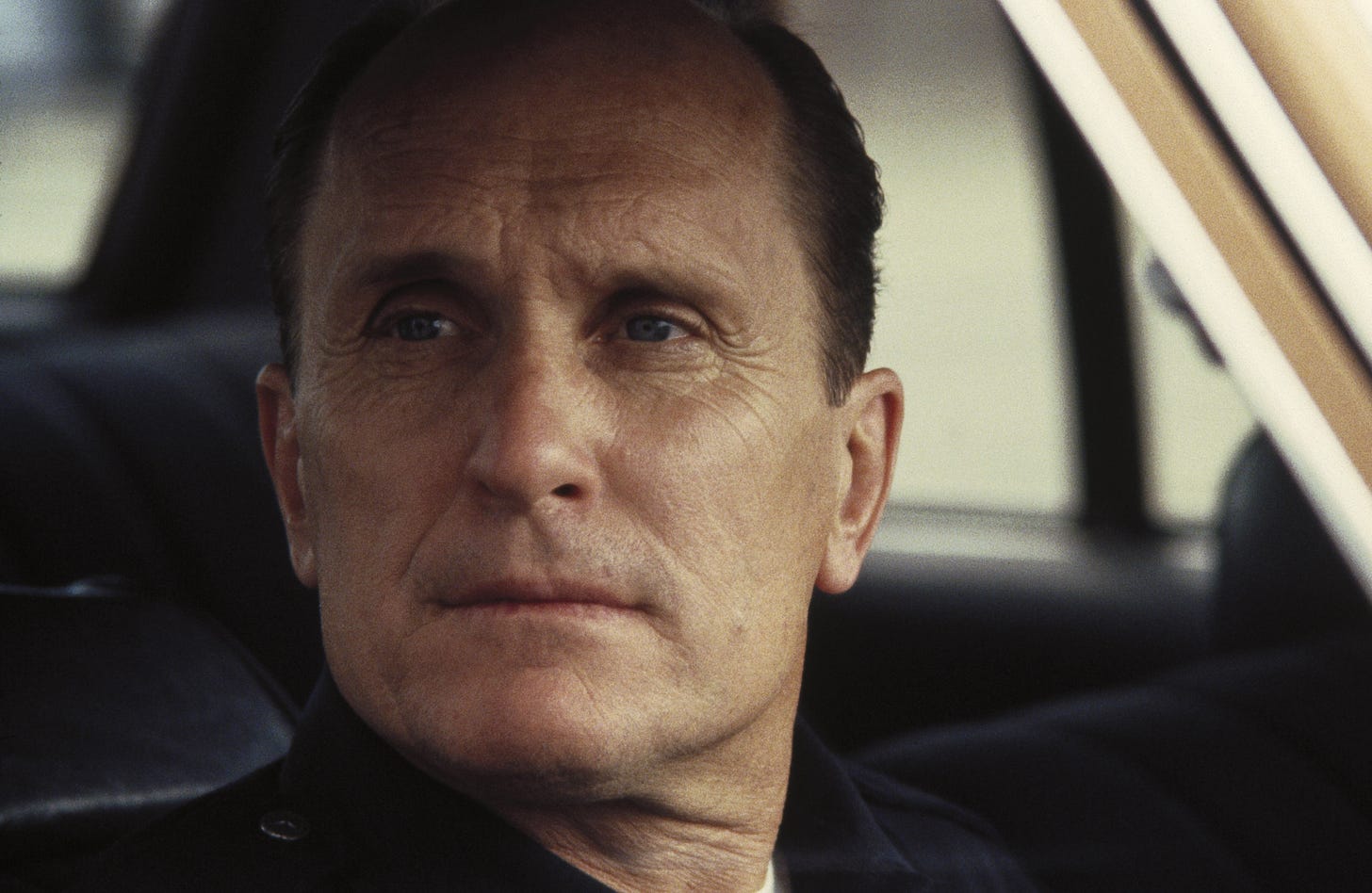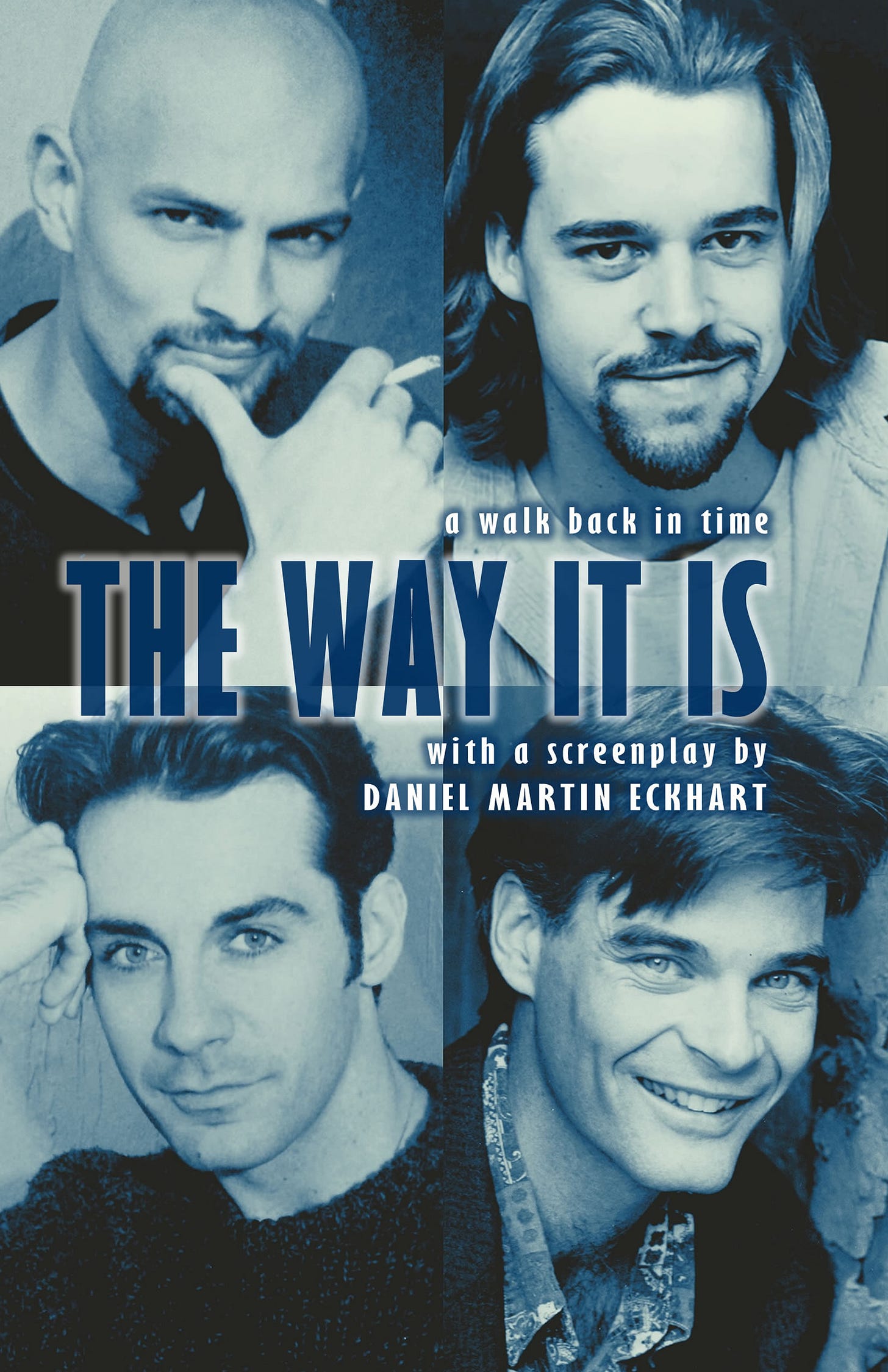An ounce of behavior is worth a pound of words
Dialogue’s quite often a problem for screenwriters. Too wordy, too “on the nose," too stilted, too expositional, yadayadayada. The craft of acting greatly helps.
I’ve had the great fortune to attend and graduate from an acting school that brought forth a great many talents (you’ll find a few alumni pictured in this post).
What fantastic school was this, you’re dying to ask, right? It’s one you may not have heard of – it’s The Neighborhood Playhouse School of the Theatre in New York. Sanford Meisner and Lee Strasberg were both part of the famous Group Theatre in the 30s. Strasberg went on to form the Actor’s Studio with his “Method”. Sandy Meisner took a different turn, created the “Technique” and brought it to the Neighborhood Playhouse.
When I was at the Playhouse in the early nineties, Sandy was still alive and still a monumental presence in the tiny gnarled body of an old man. And the sign on the wall of our classroom reminded us every day that “An ounce of behavior is worth a pound of words.” Acting is not about talking, it is about doing. Obvious enough, right? And yet we writers cram dialogue upon dialogue into our scripts. Of course you need some of it – but always remember the title of this blog – it’s an ultimate truth, for film, for actors, for the audience.
Just think, you’re watching a film. The old man on screen just lost his dog. The mutt got run over by a car. Now the old man tells you how sad he is… which is entirely lame, of course. As screenwriters we should always think visual (another obvious), we should also always think ‘actors’ and ‘audience.’ The scene with the sad old man might be:
A small mound of earth in the garden. The OLD MAN exits the house, stands on the porch with the dog’s leash. He WHISTLES, smiles – nothing happens. The WIFE steps out and puts her hand on his shoulder, gently shakes her head. He looks at her in confusion.
The OLD MAN on the street, holding the dead dog, staring after the hit-and-run car disappearing around the corner at high speed. Holding on to the dog, trembling.
The OLD MAN sits down heavily at the curb, staring at the lump of the dead dog in the street. Completely in shock, he doesn’t even realize the people running toward him, crowding him, trying to talk to him – he hears nothing. Then the dead dog rises and walks to him, tail wagging – the old man smiles.
Countless options! And yes, there will also be good options WITH dialogue. But just remember, good actors want to act, not talk. And whatever emotion you want to convey will comes across ten-fold stronger if you convey it through action instead of dialogue.
There’s a nice little John Wayne anecdote – admittedly, not one of the greatest actors – but a very screen-smart star. Apparently, whenever reading a script, he would shift the dialogue bits to his co-stars and make sure he would get the silent reaction shots. Smart move. Let the others talk – I’ll have the strong moment instead! And that’s the one that will stay with the audience. Always remember: “An ounce of behavior is worth a pound of words.”
And if anyone ever asks you about an excellent acting school – trust me - there's nothing better than the Neighborhood Playhouse School of the Theatre and Sandy Meisner’s Technique.
Curious about more Neighborhood Playhouse alumni who’ve gone on to enrich the world of film with their craft? > visit here.
As I wrote the above, my mind wandered back to the two most intense years of my life, the life spent with 100+ hour weeks deep in the world of theater, the life spent at the Neighborhood Playhouse, the life where just about every minute (both waking and dreaming) was focused on becoming an actor. It reminded me just how much I’ve loved that time, and how much it formed me… and it reminded me that I had actually reminisced about those years in another way - by writing a screenplay about it, and then publishing said screenplay.
When I was twenty-seven, I’m pretty sure that most people thought of me as a grown man. In truth, I was half-grown, at most.
By then I had already lived what felt like several lives. I had spent two years protecting the Pope John Paul II’s life in the Vatican as a Swiss Guard, had discovered languages and history and people from around the world. I had held Napoleon’s golden sword and I had lain, late at night, on the floor of the Sistine Chapel, gazing up at the ceiling bursting with Michelangelo’s creations. I had searched the UN headquarters in New York for bombs, I had driven diplomatic trucks through the Sinai desert and big shots in armored limousines through Beirut. I had been held at gunpoint in the Druse hills of Lebanon, where I also narrowly missed a bullet and a few car bombs. And when I was in Tehran, while I was partying at the German embassy, my friends were kidnapped by the revolutionary guards. I’ve been lucky, time and time again. A clandestine late-night jet flight got us out of Iran and into Iraq… and I was still there when Saddam Hussein decided to invade Kuwait. I made the last plane out before the war began.
There are many stories and what feels like many lives and one day I’ll likely write them all down. I remember rich experiences, good ones, bad ones. I lived them as well as I could and I wouldn’t want to miss any of them as they all formed part of the path that would lead me to becoming myself. At the age of twenty-seven I followed a childhood dream. I dropped what would have become a life-long UN career and instead went to acting school in New York City. It changed… everything.
The two years, from entering on the first day, with fear almost choking me, to the high and the tears of graduation, were moment upon moment of truth. Imagine that, two years, all the time, every moment of every day. I was an introvert when I started at the Neighborhood Playhouse and I am still an introvert today. But the Playhouse, the teachers and the class mates taught me that I could be open, that I could show my innermost self and that no one would stab my exposed heart. The Neighborhood Playhouse has taught me to be me, to be open and courageous in the face of life.
Acting school, for me, was the highest of highs and the lowest of lows. It meant experiencing everything with an intensity I had never thought possible, an intensity most people shy away from, and an intensity actors crave. The Neighborhood Playhouse scared me and there wasn’t a day over the course of those two years that it didn’t. It was a constant challenge, to show up, to rise up, to open up, to dare – day after day after day. No one was more instrumental in guiding me on my journey than the inimitable Richard Pinter. The man exuded passion, a love for and deep understanding of life, a Buddha-like spirit in the guise of a flamboyant New York City acting teacher.
A few years after leaving the Playhouse (where I had discovered my passion for screenwriting), we had all gone our merry ways. I had left New York to start a family with the love of my life in Europe. I missed the intensity of the Playhouse, I missed the pulse of the City and most of all I missed my friends… I had the urge to, once more, spend a bit of time in the company of my best friends and fellow Playhouse compatriots Gary, Simon and Timmy. I wanted to hang out with them, I wanted to see Richard Pinter again, I wanted to walk through the streets of the New York City, hang out at the diners … and so I wrote a screenplay about just that. I never intended for this to become a movie, it was just may way of being there - heck, the script wasn’t even about the story, as much as it was about a sense of time and place in the company of treasured friends.
If you’re interested in a fictitious story of four very real guys in New York City, a year after leaving the Neighborhood Playhouse in May of 1992, living, hoping, struggling, chasing their dreams - well, here it is.

